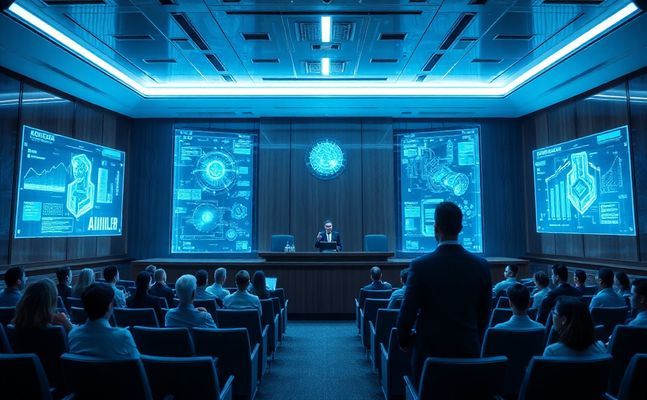As technological advancements continue to reshape industries, the legal profession stands at a critical juncture. The integration of artificial intelligence (AI) and quantum technology presents unique opportunities and challenges for lawyers. AI has already begun to transform the legal landscape, automating mundane tasks, enhancing research capabilities, and facilitating document analysis.
However, the introduction of quantum computing propels these changes to an unprecedented level, presenting the potential for exponential improvements in processing power and problem-solving capabilities. Legal professionals must now navigate this rapidly evolving environment, understanding how to leverage these technologies while remaining vigilant about the ethical implications and regulatory frameworks involved.
The Role of AGI in Revolutionising Legal Procedures
Artificial General Intelligence (AGI) is a key focus in the broader discussion of AI's role in society. For lawyers, AGI could mean a shift in the nature of legal work itself. Instead of mere automation of routine tasks, AGI may facilitate deeper analytical capabilities that allow for complex legal reasoning akin to human lawyers. However, this evolution raises critical questions about the viability of human lawyers in an AGI-dominated landscape. Will AGI systems be able to surpass human judgement in cases? Will they be seen as better judges of nuance in legal arguments? As we explore AGI's potential, it is vital that the legal community engages in discussions around accountability, ethics, and the preservation of human oversight in legal proceedings.
Video: The future of AI and the law
The Implications of Quantum Computing on Legal Case Outcomes

Quantum computing brings unique capabilities that can significantly influence how legal cases are approached and resolved. The ability to process vast amounts of data and solve complex problems at unprecedented speeds can enable legal professionals to analyse precedents, extract insights, and predict outcomes with remarkable accuracy. This could lead to more informed decision-making in legal strategy formulation.
As the legal sector begins to grok the implications of quantum technology, it will become increasingly important for lawyers to educate themselves about its functionalities and potential use cases. Embracing quantum computing can lead to a more efficient judicial process, but it also underscores the need for new frameworks in data protection and privacy laws that address the risks associated with handling sensitive information in a quantum context.
The Need for New Regulations in AI and Quantum Legal Innovations
As AI and quantum technologies continue their integration into the legal sector, law firms and regulatory bodies must address the legal ramifications of these innovations proactively. Establishing comprehensive regulations that govern the ethical use of AI in legal settings will be paramount. Furthermore, as quantum technology challenges existing encryption methods, lawyers need to advocate for laws that protect client confidentiality and sensitive data.
Developing a regulatory framework that ensures fairness, accountability, and transparency is crucial as we advance towards an ecosystem comprising AGI and quantum-powered legal services. The challenge lies in striking a balance between innovation and safeguarding the rights of individuals involved in legal proceedings.
Case Studies: AI and Quantum Technology in Today's Legal Landscape

Several case studies exemplify the practical applications of AI and quantum computing in law. For instance, AI-driven legal research platforms have revolutionized how lawyers gather case insights, enabling them to build stronger strategies based on data-derived predictions. Additionally, firms experimenting with quantum device simulators are preparing for a future where quantum effects could lead to game-changing algorithms for case analysis.
These innovations offer a glimpse of what is possible when advanced technology meets legal practice. As these technologies gain traction, the industry must embrace a collaborative mindset that encourages innovation while maintaining the ethical standards that guide legal practice. The journey towards integrating AI and quantum technologies is not merely a technological shift. Rather, it represents the evolution of legal thought and practice in the 21st century.
Fun Facts about AI, Quantum Computing, and the Future of Law
As we continue to explore the fascinating world at the intersection of AI, quantum computing, and law, there are several fun facts to consider. For example, did you know that the first AI programme, Logic Theorist, was developed in 1955 and was able to prove mathematical theorems? Similarly, quantum computers could perform certain calculations in a fraction of the time it would take classical computers—potentially solving complex legal problems quicker than ever imagined. Moreover, while AGI remains a theoretical concept, ongoing research aims to achieve systems that exhibit human-like reasoning and understanding, possibly making case arguments more compelling than ever. Finally, as lawyers face the evolving landscape, embracing these technologies may not only improve efficiency but also create entirely new roles in legal practice, ensuring that the profession adapts and thrives in a

 EN
EN  MT
MT  DE
DE  FR
FR  ES
ES  IT
IT 